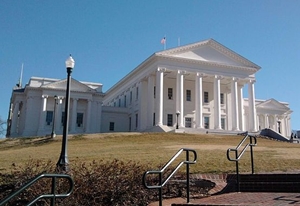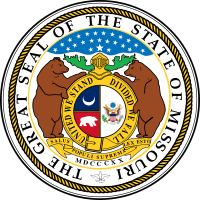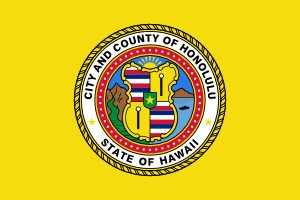April 25, 2016 •
Monday News Roundup
Lobbying “Lobbyists Capitalize on Election Scramble” by Megan Wilson for The Hill Alabama: “Muslim Activists from Alabama See the Capitol’s Sights, but Not Their Delegation” by Abigail Hauslohner for Washington Post Campaign Finance “Gyrocopter Pilot Who Landed at U.S. Capitol […]
Lobbying
“Lobbyists Capitalize on Election Scramble” by Megan Wilson for The Hill
Alabama: “Muslim Activists from Alabama See the Capitol’s Sights, but Not Their Delegation” by Abigail Hauslohner for Washington Post
Campaign Finance
“Gyrocopter Pilot Who Landed at U.S. Capitol Sentenced to Four Months in Prison” by Spencer Hsu for Washington Post
Florida: “With Uncertainty at Top of Ticket, Republicans Back Off in Some States” by Jonathan Martin for New York Times
Maryland: “Fundraising Ban Loophole Allows Some Maryland Lawmakers to Take Lobbyist Cash” by Fenit Nirappil for Washington Post
New Jersey: “Birdsall CEO Gets 4 Years in Huge N.J. Pay-to-Play Scheme” by S.P. Sullivan (NJ Advance Media) for Newark Star-Ledger
Ethics
“Senate Backs Ethics Panel Plan That’s Seen as Too Little, Too Late” by Mark Johnson for VTDigger.org
Missouri: “State Lawmakers Send Ethics Bills to Governor” by Summer Ballentine (Associated Press) for Springfield News-Leader
Pennsylvania:”Mike Fleck, Allentown Mayor’s Adviser, Friend Charged in FBI Probe” by Emily Opilo and Peter Hall for Allentown Morning Call
Indiana: “Indiana Lawmaker Defends Taking Family on California Trip” by Brian Slodysko (Associated Press) for Sacramento Bee
Elections
“Special Election Results Buoy Hope for Reform” by David Howard King for Gotham Gazette
“Pro-Hillary Super PAC to ‘Correct’ Reddit and Facebook” by Steven Klett for Epoch Times
April 22, 2016 •
News You Can Use Digest – April 22, 2016
National: Elizabeth Warren, Comic Book Hero? Senator Is Latest to Star Albuquerque Journal – Steve LeBlanc (Associated Press) | Published: 4/18/2016 “Female Force: Elizabeth Warren” tells the true-life story of Warren’s rise from Oklahoma schoolgirl to U.S. senator and champion of […]

National:
Elizabeth Warren, Comic Book Hero? Senator Is Latest to Star
Albuquerque Journal – Steve LeBlanc (Associated Press) | Published: 4/18/2016
“Female Force: Elizabeth Warren” tells the true-life story of Warren’s rise from Oklahoma schoolgirl to U.S. senator and champion of the liberal wing of the Democratic Party. The 22-page comic is the brainchild of publishers Storm Entertainment and is part of a larger series designed to celebrate the lives of notable women. Instead of leaping over tall buildings, Warren’s political superpowers are focused on something she sees as even more threatening: the Wall Street and Capitol Hill power brokers she holds responsible for hollowing out the middle class. The bulk of the book steers clear of ideological battles and instead zeroes in on Warren’s personal and professional struggles.
Voters Angry About Big Money in Politics Take Their Complaints to City Hall
Washington Post – Matea Gold | Published: 4/18/2016
A backlash against wealthy interests in politics that has lifted the White House bids of Donald Trump and Bernie Sanders is reverberating beyond this year’s presidential race. The large sums swamping campaigns have prompted voters to appeal to City Halls and state Capitols, hoping to curb the influence of well-heeled donors in their communities. One of the biggest public protests drew thousands to the National Mall in Washington, D.C. But similar, if smaller, efforts have been playing out across the country. The growing number of local campaigns means politicians at every level of government are contending with voters who believe their voices are being drowned out by those with more resources.
Federal:
PAC Donations from Elderly Donors Draw Scrutiny
USA Today – Fredreka Schouten and Christopher Schnaars | Published: 4/18/2016
VIGOP, an obscure fundraising committee from the Virgin Islands, is one of the top-spending PACs in a constellation of groups tied to Scott Mackenzie, a political treasurer. Mackenzie, whose spending practices have drawn scrutiny in recent years from watchdogs and candidates, has served as treasurer of more than 20 PACs at some point in this election cycle. Three of them, including VIGOP, have collected more than $1 million so far for the 2016 election. In each case, more than half their contributions larger than $200 came from retirees. At the same time, a large share of the donations these groups took in went to fund operating expenses instead of direct contributions to Republican candidates. FEC member Ann Ravel has sounded alarms about the rise of PACs she believes are engaged in “consumer deception” but says there is little in current federal law that gives the agency authority to act.
The New Gilded Age: Close to half of all super PAC money comes from 50 donors
Washington Post – Matea Gold and Anu Narayanswamy | Published: 4/15/2016
Close to half of the money raised by the groups by the end of February came from just 50 donors and their relatives, according to a Washington Post analysis. In all, donors this cycle have given more than $607 million to 2,300 super PACs, which can accept unlimited contributions from individuals and corporations. That means super PAC money is on track to surpass the $828 million the Center for Responsive Politics found was raised by such groups for the 2012 elections. The huge amounts reflect how super PACs are fundraising powerhouses just six years after they came on the scene. The concentration of fundraising power carries echoes of the end of the 19th century, when wealthy interests spent millions helping put William McKinley in the White House.
Trade Group for Lobbyists Closing Down
The Hill – Megan Wilson | Published: 4/19/2016
The Association of Government Relations Professionals (AGRP), formerly the American League of Lobbyists, is shutting down. The closure reportedly stems from a contract dispute with Columbia Books, which runs the website Lobbyists.info and had been a sponsor for events organized by AGRP. Founded to raise the image of the lobbying profession, AGRP offered networking and courses through its Lobbying Certificate Program. Paul Miller, a lobbyist with Miller/Wenhold Capitol Strategies, said he has created a new organization called the National Institute for Lobbying and Ethics in the wake of AGRP discontinuing its certificate program.
From the States and Municipalities:
Arizona – Supreme Court Upholds Arizona Redistricting Plan
Washington Post – Robert Barnes | Published: 4/20/2016
The U.S. Supreme Court unanimously upheld the state legislative districts in Arizona drawn by an independent commission, rebuffing complaints the electoral maps diminished the clout of Republican voters. The justices said the commission that draws legislative boundaries did not violate the U.S. Constitution’s principle of “one person, one vote.” The case focused on state legislative districts drawn for the 2012 election based on 2010 census numbers. The challengers said the new districts favored Democrats over Republicans by packing GOP voters into certain districts in a way that would minimize their influence in neighboring districts while enhancing the sway of Democratic voters.
California – Are You an Independent Voter? You Aren’t If You Checked This Box
Los Angeles Times – John Myers, Christine Mai-Duc, and Ben Welsh | Published: 4/16/2016
The American Independent Party (AIP) is bigger than all of California’s other minor parties combined. The ultraconservative party’s platform opposes abortion rights and same sex marriage, and calls for building a fence along the entire U.S. border. But a Los Angeles Times investigation has found a majority of its members have registered with the party in error. Nearly three in four people did not realize they had joined the party, according to a survey of registered AIP voters. That mistake could prevent people from casting votes in the June 7 presidential primary. Voters from all walks of life were confused by the use of the word “independent” in the party’s name, according to the newspaper’s analysis.
California – Political Fine from 2012 Mayor’s Race Sets Record
San Diego Union-Tribune – Greg Moran | Published: 4/15/2016
A company that illegally funneled campaign contributions in San Diego’s 2012 mayoral race was fined $128,000 by the city Ethics Commission, the largest penalty ever levied by the agency for campaign finance violations. The investigation revealed the owner of Advantage Towing, Ayman Arekat, orchestrated a series of straw-donor contribution to three campaigns, then hid the source. Arekat, whose company dis business with the city, had employees make $500 contributions – at the time, the maximum allowed under the law – and then reimbursed them with checks drawn on the company’s account.
Florida – Florida Says Firm Didn’t Illegally Try to Influence Attorney General
New York Times – Eric Lipton | Published: 4/20/2016
Bernard Nash, a partner in a former Washington, D.C. law firm who allegedly sought favorable attention from Florida’s attorney general on his clients’ behalf without being registered as a lobbyist, did not violate Florida lobbying law, the state ethics commission found. The investigation began in response to a series of articles that examined the increasing efforts by a wide range of corporations to influence state attorneys general. Lawyers who handle this kind of business rarely register as lobbyists, even though in many cases they also work on general policy matters, like urging state attorneys general to intervene with the federal government on environmental regulations their corporate clients oppose, The New York Times found.
Kentucky – Beshear Aide Tim Longmeyer Pleads Guilty to Bribery; Investigation Continues
Lexington Herald-Leader – John Cheves and Bill Estep | Published: 4/19/2016
A onetime high-ranking state official whose criminal charges were an embarrassment for former Kentucky Gov. Steve Beshear pleaded guilty to a federal bribery charge. Tim Longmeyer abruptly resigned as a deputy in the state attorney general’s office two days before a criminal complaint was announced in March. Longmeyer pleaded guilty to using his influence as the head of the state’s Personnel Cabinet under former Beshear to steer contracts to a public relations firm in 2014 and 2015. Longmeyer admitted to receiving more than $200,000 in kickbacks from the firm. He faces up to 10 years in prison. Prosecutors have not named the consulting firm, but said more people could be charged in the case.
Louisiana – Who’s Really Being Wined and Dined? Louisiana Legislators Trying to Clear up Vague Lobbyist Disclosure Laws
New Orleans Advocate – Elizabeth Crisp | Published: 4/17/2016
Louisiana’s lobbying disclosure laws leave large gaps that lawmakers are trying to fix this year. Several bills making their way through the Legislature this session are aimed at making disclosures more specific – from lobbyists’ reports to the financial disclosures that elected officials have to file. Rep. Chris Broadwater noted in a recent House committee meeting that he did not attend many of the events where his name is listed in lobbyist disclosure reports and he was not treated to nearly all the fancy steak dinners that were ascribed to him. “We work with some very good lobbyists, but I think there are some mistakes made,” Broadwater said.
Michigan – ‘More to Come,’ Attorney General Vows, as Officials Criminally Charged in Flint Water Crisis
Washington Post – Brady Dennis and Mark Berman | Published: 4/20/2016
The first criminal charges stemming from the Flint water crisis were filed as two state officials and a city employee were accused of covering up evidence of lead contamination. Two people at the Michigan Department of Environmental Quality were charged with misleading the U.S. Environmental Protection Agency about whether Flint was using the treatment needed to control lead levels after the city switched its water supply in 2014. Michael Prysby, a district engineer, and Stephen Busch, a district supervisor, were also accused of impeding a Genesee County investigation. Michael Glasglow, the city’s utilities administrator, was charged with tampering with test results to make the lead contamination appear less severe. Michigan Attorney General Bill Schuette stressed that the charges mark the beginning of a broadening investigation.
Oregon – Political Consultants Must Disclose Clients under New Portland Rule
Portland Oregonian – Brad Schmidt | Published: 4/21/2016
New regulations that take effect on September 1 will require political consultants to register if they advise members of the Portland City Council or the city’s elected auditor. Elected officials also will be required to disclose the consultants who give them advice. But the rules do not prohibit consultants from lobbying the clients they help elect or keep in City Hall. Portland’s new rules will require consultants and lobbyists to disclose when political service begins. But there is not a requirement to reveal the topics or type of service provided.
Virginia – Va. Lawmakers Sustain Series of McAuliffe Vetoes
Richmond Times Dispatch; Staff – | Published: 4/20/2016
State lawmakers rejected proposed changes by Gov. Terry McAuliffe to Virginia’s new ethics law, saying they were unnecessary. Lawmakers agreed to a $100 cap on gifts in last year’s session, but passed legislation this year that makes exceptions for certain kinds of gifts, including food and drinks under $20. The governor also wanted to prohibit lobbyists from bundling gifts together from multiple clients to avoid exceeding the $100 cap. McAuliffe will review whether to veto the legislation following the rejection of his amendments.
 State and Federal Communications produces a weekly summary of national news, offering more than 60 articles per week focused on ethics, lobbying, and campaign finance.
State and Federal Communications produces a weekly summary of national news, offering more than 60 articles per week focused on ethics, lobbying, and campaign finance.
April 21, 2016 •
Missouri General Assembly Sends Ethics Legislation to Governor
Missouri lawmakers sent legislation to the governor on Wednesday as part of the state’s attempt at ethics reform. One bill would create a revolving door provision, prohibiting legislators and statewide elected officials from lobbying until six months after their respective […]
 Missouri lawmakers sent legislation to the governor on Wednesday as part of the state’s attempt at ethics reform. One bill would create a revolving door provision, prohibiting legislators and statewide elected officials from lobbying until six months after their respective terms end. Because he has expressed a need for ethics reform since 2009, Gov. Nixon is likely to sign the bill.
Missouri lawmakers sent legislation to the governor on Wednesday as part of the state’s attempt at ethics reform. One bill would create a revolving door provision, prohibiting legislators and statewide elected officials from lobbying until six months after their respective terms end. Because he has expressed a need for ethics reform since 2009, Gov. Nixon is likely to sign the bill.
Another piece of legislation still under consideration involves a potential ban on lobbyist gifts to public officials. The Senate recently voted on an amendment to remove the ban from the bill and, instead, to replace it with a $40 per-gift limit for each lawmaker.
April 21, 2016 •
Portland, Oregon Passes Political Consultant Disclosure Rule
Portland City Council passed an ordinance that will make relationships between city officials and political consultants more transparent. Under the ordinance, a political consultant has to register with the city within 15 days of providing consulting services to a city […]
 Portland City Council passed an ordinance that will make relationships between city officials and political consultants more transparent. Under the ordinance, a political consultant has to register with the city within 15 days of providing consulting services to a city elected official.
Portland City Council passed an ordinance that will make relationships between city officials and political consultants more transparent. Under the ordinance, a political consultant has to register with the city within 15 days of providing consulting services to a city elected official.
Elected officials will also be required to file quarterly reports identifying any political consultants who provided services to the official.
The new rules go into effect September 1, 2016.
April 21, 2016 •
Thursday News Roundup
Lobbying “Trade Group for Lobbyists Closing Down” by Megan Wilson for The Hill “Va. Lawmakers Sustain Series of McAuliffe Vetoes” by Jim Nolan for Richmond Times Dispatch Campaign Finance “Inquiry of Mayor de Blasio Fund-Raising Extends to ’14 State Senate […]
 Lobbying
Lobbying
“Trade Group for Lobbyists Closing Down” by Megan Wilson for The Hill
“Va. Lawmakers Sustain Series of McAuliffe Vetoes” by Jim Nolan for Richmond Times Dispatch
Campaign Finance
“Inquiry of Mayor de Blasio Fund-Raising Extends to ’14 State Senate Races” by William Rashbaum for New York Times
Ethics
“Beshear Aide Tim Longmeyer Pleads Guilty to Bribery; Investigation Continues” by John Cheves and Bill Estep for Lexington Herald-Leader
“‘More to Come,’ Attorney General Vows, as Officials Criminally Charged in Flint Water Crisis” by Brady Dennis and Mark Berman for Washington Post
“Tough Job, Tough Questions for Campaign Watchdog Hopefuls” by Rachel Stassen-Berger for St. Paul Pioneer Press
Elections
“Why Ohio’s Bribery Law Isn’t Going to Upend the GOP Race” by Philip Elliott for Time
Legislative Issues
“Court Rules Indiana Lawmakers Can Keep Emails Private” by Tom Davies (Associated Press) for Indianapolis Business Journal
Redistricting
“Supreme Court Upholds Arizona Redistricting Plan” by Robert Barnes for Washington Post
April 20, 2016 •
Virginia Senate Rejects Governor’s Amendments to Ethics Bills
Meeting today for its annual veto-session, the Virginia General Assembly turned its attention to ethics legislation amendments recommended by Gov. Terry McAuliffe. Lawmakers recently passed identical bills, Senate Bill 692 and House Bill 1362, to roll back some of the […]
 Meeting today for its annual veto-session, the Virginia General Assembly turned its attention to ethics legislation amendments recommended by Gov. Terry McAuliffe. Lawmakers recently passed identical bills, Senate Bill 692 and House Bill 1362, to roll back some of the changes made last year to restrictions on gifts from lobbyists.
Meeting today for its annual veto-session, the Virginia General Assembly turned its attention to ethics legislation amendments recommended by Gov. Terry McAuliffe. Lawmakers recently passed identical bills, Senate Bill 692 and House Bill 1362, to roll back some of the changes made last year to restrictions on gifts from lobbyists.
McAuliffe proposed tightening the limits further and prohibiting bundling of gifts from multiple sources to avoid the threshold. The Senate, today, voted against adopting those proposals. The governor must now choose between signing or vetoing the bills as passed by both houses.
Photo of the Virginia State Capitol by Anderskev in Wikimedia Commons.
April 20, 2016 •
San Luis Obispo, CA City Council Votes Against Democracy Vouchers
San Luis Obispo City Council voted yesterday not to proceed with a proposed ordinance to create a system of democracy voucher funding for municipal elections. The voucher system would have provided each registered voter with a $20 voucher that could […]
 San Luis Obispo City Council voted yesterday not to proceed with a proposed ordinance to create a system of democracy voucher funding for municipal elections. The voucher system would have provided each registered voter with a $20 voucher that could be donated to the municipal candidate of choice.
San Luis Obispo City Council voted yesterday not to proceed with a proposed ordinance to create a system of democracy voucher funding for municipal elections. The voucher system would have provided each registered voter with a $20 voucher that could be donated to the municipal candidate of choice.
Additionally, this ordinance would have created an ethics commission and required reporting on independent expenditures over $500.
April 20, 2016 •
Wednesday Government Relations News
Lobbying “Lobbyists and Corporations, Arm-in-Arm” by Rani Molla for Bloomberg.com “What is Shadow Lobbying? How Influence Peddlers Shape Policy in the Dark” by Libby Watson for Sunlight Foundation Campaign Finance “PAC Donations from Elderly Donors Draw Scrutiny” by Fredreka Schouten […]
 Lobbying
Lobbying
“Lobbyists and Corporations, Arm-in-Arm” by Rani Molla for Bloomberg.com
“What is Shadow Lobbying? How Influence Peddlers Shape Policy in the Dark” by Libby Watson for Sunlight Foundation
Campaign Finance
“PAC Donations from Elderly Donors Draw Scrutiny” by Fredreka Schouten and Christopher Schnaars for USA Today
“George Clooney Certainly Has Raised Some ‘Obscene’ Amounts of Campaign Money” by Justin Moyer for Washington Post
Mississippi: “No Restrictions on Legislators as Mississippi House Turns Back Campaign Cash Rules” by The Associated Press for Mississippi Business Journal
Montana: “Judge Weighs Whether Low Contribution Limits Are Justified” by Matt Volz (Associated Press) for The Missoulian
Ethics
District of Columbia: “DC Schools Chief Asked Contractor for $100K” by Ben Nuckols (Associated Press) for Idaho Statesman
Elections
“New York Blowout Gives Donald Trump Big Boost in GOP Race” by Jenna Johnson and Philip Rucker for Washington Post
“Strong Showing by Clinton in Defeat of Sanders in New York Primary” by Abby Phillip, John Wagner, and Anne Gearan for Washington Post
Procurement
“Governments Struggle to Root Out Fake Minority Contractors” by Mattie Quinn for Governing
April 19, 2016 •
Tuesday Lobbying and Campaign Finance News Update
Lobbying Colorado: “Lobbyist Ben Walters May Be in Hot Water for Lying to Lawmakers” by Marianne Goodland for Colorado Independent Louisiana: “Who’s Really Being Wined and Dined? Louisiana Legislators Trying to Clear up Vague Lobbyist Disclosure Laws” by Elizabeth Crisp […]
 Lobbying
Lobbying
Colorado: “Lobbyist Ben Walters May Be in Hot Water for Lying to Lawmakers” by Marianne Goodland for Colorado Independent
Louisiana: “Who’s Really Being Wined and Dined? Louisiana Legislators Trying to Clear up Vague Lobbyist Disclosure Laws” by Elizabeth Crisp for New Orleans Advocate
Campaign Finance
“Voters Angry About Big Money in Politics Take Their Complaints to City Hall” by Matea Gold for Washington Post
“FEC’s Petersen Hints Interest in Foreign-Money Rules” by Kenneth Doyle for Bloomberg BNA
“Inside a Contest Winner’s Starry Night at George and Amal Clooney’s Fundraiser for Hillary Clinton: ‘They made us feel at home’” by Rennie Dyball for People.com
“Court Unseals Investigative File from Ex-D.C. Mayor Gray Campaign Probe” by Mike DeBonis, Anne Marimow, and Spencer Hsu for Washington Post
Florida: “Jacksonville Rep. Reggie Fullwood Indicted on Federal Charges, Accused of Embezzling Campaign Money” by Kristen Clark for Miami Herald
Ethics
“Elizabeth Warren, Comic Book Hero? Senator Is Latest to Star” by Steve LeBlanc (Associated Press) for Albuquerque Journal
Indiana: “Do City’s New Ethics Rules Go Far Enough?” by Haleigh Colombo for Indianapolis Business Journal
Elections
California: “Are You an Independent Voter? You Aren’t If You Checked This Box” by John Myers, Christine Mai-Duc, and Ben Welsh for Los Angeles Times
April 18, 2016 •
Monday News Roundup
Lobbying Ohio: “Many GOP Lobbyists Will Go to Cleveland but the Thrill Is Gone” by Catherine Ho for Washington Post Campaign Finance “The New Gilded Age: Close to half of all super PAC money comes from 50 donors” by Matea […]
L obbying
obbying
Ohio: “Many GOP Lobbyists Will Go to Cleveland but the Thrill Is Gone” by Catherine Ho for Washington Post
Campaign Finance
“The New Gilded Age: Close to half of all super PAC money comes from 50 donors” by Matea Gold and Anu Narayanswamy for Washington Post
California: “Political Fine from 2012 Mayor’s Race Sets Record” by Greg Moran for San Diego Union-Tribune
Ethics
“Unsealed Document Alleges Silver Had Two Extramarital Affairs” by Coby Hamilton and Josefa Velasquez for Capital New York
“Inquiries Cloud de Blasio’s Bid to Come Off as Strong Manager Before ’17 Race” by J. David Goodman and William Neuman for New York Times
South Carolina: “SLED Report Names 2 with Ties to SC Attorney General Wilson” by John Monk for The State
Alabama: “Alabama Governor Had His Wallet Delivered to Him by Law Enforcement Helicopter” by Travis Andrews for Washington Post
Missouri: “Missouri’s Nixon Signs Bill Tightening Loose Ethics Laws” by Summer Ballentine (Associated Press) for ABC News
Elections
“Prosecutor Says He Won’t Pursue Case against Trump Campaign Manager” by Terrence Dopp for Bloomberg.com
Michigan: “Gov. Snyder Sets Elections to Fill Virgil Smith’s Senate Seat” by Kathleen Gray for Detroit Free Press
Legislative Issues
Tennessee: “Gov. Bill Haslam Vetoes Bible Bill” by Dave Boucher, Holly Meyer, and Joel Ebert for The Tennessean
April 15, 2016 •
Missouri Governor Signs Ethics Bill
Missouri Gov. Jay Nixon signed House Bill 1983 yesterday, prohibiting statewide elected officials and legislators from receiving compensation as paid political consultants on behalf of other officials or members of the General Assembly. The bill is the first ethics-related legislation […]
 Missouri Gov. Jay Nixon signed House Bill 1983 yesterday, prohibiting statewide elected officials and legislators from receiving compensation as paid political consultants on behalf of other officials or members of the General Assembly. The bill is the first ethics-related legislation to cross the governor’s desk since multiple lawmakers resigned last year amid embarrassing sex scandals.
Missouri Gov. Jay Nixon signed House Bill 1983 yesterday, prohibiting statewide elected officials and legislators from receiving compensation as paid political consultants on behalf of other officials or members of the General Assembly. The bill is the first ethics-related legislation to cross the governor’s desk since multiple lawmakers resigned last year amid embarrassing sex scandals.
While the law does not address the conduct issues of the past, Nixon believes it is a step in the right direction and will strengthen the ethics laws he believes are the weakest in the nation. Missouri is one of few states with no campaign contribution limits, no limits on lobbyist gifts to lawmakers, and no revolving door provisions preventing legislators from immediately lobbying after leaving office.
April 15, 2016 •
Idaho Overhauls Purchasing Procedures with New Law
Gov. Butch Otter signed a procurement bill into law late last month, overhauling how the state makes purchases. House Bill 538 repeals existing statutes in favor of a completely new chapter, dubbed the State Procurement Act. The Act requires training […]
 Gov. Butch Otter signed a procurement bill into law late last month, overhauling how the state makes purchases.
Gov. Butch Otter signed a procurement bill into law late last month, overhauling how the state makes purchases.
House Bill 538 repeals existing statutes in favor of a completely new chapter, dubbed the State Procurement Act. The Act requires training for state officers and employees, including ethics training, and modernizes purchasing procedures.
The new law takes effect July 1, 2016.
April 15, 2016 •
Honolulu Charter Commission Considers Amending Gift Provisions
The Honolulu Charter Commission is considering a proposal today to clarify conflict-of-interest provisions for city employees and officials. Current charter provisions prohibit employees and officials from soliciting or accepting any gift, directly or indirectly, if it can reasonably be inferred […]
 The Honolulu Charter Commission is considering a proposal today to clarify conflict-of-interest provisions for city employees and officials. Current charter provisions prohibit employees and officials from soliciting or accepting any gift, directly or indirectly, if it can reasonably be inferred the gift is intended to influence the officer or employee in the performance of official duties. The new proposal would prohibit only those gifts intended to influence an officer or employee in the performance of official duties and benefiting the official, his or her family, or individuals or organizations with which he or she has a past, present, or future connection.
The Honolulu Charter Commission is considering a proposal today to clarify conflict-of-interest provisions for city employees and officials. Current charter provisions prohibit employees and officials from soliciting or accepting any gift, directly or indirectly, if it can reasonably be inferred the gift is intended to influence the officer or employee in the performance of official duties. The new proposal would prohibit only those gifts intended to influence an officer or employee in the performance of official duties and benefiting the official, his or her family, or individuals or organizations with which he or she has a past, present, or future connection.
Proponents argue the proposal creates a clear standard of conduct, while opponents claim the changes would make it more difficult to enforce gift restrictions in the future. It is inherently difficult to prove the intent behind a gift or the existence of a connection with the recipient. The proposal, therefore, will likely result in individuals, namely lobbyists, avoiding penalties. Interestingly enough, several commission members are current or former lobbyists, or work for organizations employing lobbyists.
April 15, 2016 •
News You Can Use Digest – April 15, 2016
Federal: As Campaigns Seek Delegates, Ordinary Voters Feel Sidelined New York Times – Jeremy Peters | Published: 4/9/2016 For decades, both major parties have used a somewhat convoluted process for picking their presidential nominees, one that involves ordinary voters in only […]

Federal:
As Campaigns Seek Delegates, Ordinary Voters Feel Sidelined
New York Times – Jeremy Peters | Published: 4/9/2016
For decades, both major parties have used a somewhat convoluted process for picking their presidential nominees, one that involves ordinary voters in only an indirect way. As Americans flock this year to outsider candidates, the kind most hindered by these rules, they are suddenly waking up to this reality. And their confusion and anger are adding another volatile element to an election being waged over questions of fairness and equality. Like with any private members-only club – political parties are not official government entities – party leaders exercise considerable control over which candidate gets their endorsement and the privilege of using their political infrastructure, financial support, and voter base, without which winning in November is all but impossible.
Big Bucks Spent Honoring Lawmakers
The Hill – Megan Wilson | Published: 4/14/2016
Although rules ban gifts to federal officials and place limits on campaign contributions, there is no cap on the amount of money that can be spent honoring lawmakers and top officials with plaques and events, nor are there limits on donations to charities and institutes that policymakers support. The so-called honorary expenses are central to the way Washington, D.C. works yet are rarely reported in the press. More than 240 of organizations shelled out $19.75 million on honorary expenses last year, according to disclosure records. The contributions were made to more than 100 different organizations, some of which have federal officials on their boards.
Inside a Consulting Giant’s Deep Roots in Clinton Land
Politico – Rachel Bade | Published: 4/13/2016
When Hillary Clinton became secretary of state, she sought out Declan Kelly to be her economic envoy to Northern Ireland. While serving as Clinton’s special envoy, reaching out to global corporations for those investments, he was also working for two of them as a private consultant. It was also during this time period that Kelly and Doug Band, a close aide to former President Bill Clinton, were preparing to launch a global consulting business. Teneo Holdings would go on to employ numerous Hillary Clinton associates, giving clients rare access to the couple and their network of world leaders. The fact that Kelly and Band were laying the groundwork for their enterprise while Kelly was working for the State Department represents a fresh illustration of the blurring of the lines between Hillary Clinton’s political network and her State Department that critics have long noted.
Puerto Rico’s Prosperous D.C. Power Couple
New York Times – Eric Lipton and Michael Corkery | Published: 4/12/2016
As Puerto Rico has spiraled toward possible bankruptcy, the island’s sole representative in Congress has seen his family wealth swell, thanks in part to Wall Street companies that have sought to capitalize on the island’s financial crisis and have hired his wife to advise them. The dual roles, those of a lawmaker and a spouse who are both involved in the financial affairs of their community, are hardly unusual in Washington, a city where power couples are increasingly common and, at times, celebrated. But legislation that Pedro Pierluisi, the resident commissioner to Congress from Puerto Rico, has introduced would benefit at least two of the companies that have hired his wife, María Elena Carrión, for financial advice.
Why Thousands of Americans Are Lining Up to Get Arrested in D.C. This Week
Rolling Stone – Ben Wofford | Published: 4/13/2016
More than 400 protesters participating in a recent sit-in on Capitol Hill were arrested and if organizers have their way, there will be more. Democracy Spring is mobilizing a week of sit-ins at the Capitol building – over 3,500 have pledged to be arrested – in what organizers hope will become a series of intensifying waves of protest meant to highlight the influence of money in politics. In an election cycle that has already seen Black Lives Matter and other protesters change the conversation among candidates, Democracy Spring is billing itself as 2016’s first full-stage activist production.
From the States and Municipalities:
Hawaii – A Cool Million Was Spent Lobbying Hawaii Lawmakers in Two Months
Honolulu Civil Beat – Nathan Eagle | Published: 4/7/2016
Nearly $1 million was spent lobbying Hawaii lawmakers during the first two months of the year, pushing the total expenditures to almost $14 million since 2013. Disclosure reports do not detail when a lobbyist had lunch with a legislator or had a private meeting to discuss a bill. The vast majority of lobbyists report spending no money. The filings do show what organizations have hired lobbyists, who they have hired, and how much they’re paying them. But even that information has its limits.
Indiana – Indy Council Approves Ethics Reforms
Indianapolis Star – Brian Eason | Published: 4/11/2016
The ethics code for the city of Indianapolis and Marion County was overhauled with new restrictions on lobbyists and tougher penalties for noncompliance. When the ethics ordinance was first approved in 2009, it set up a registry that required lobbyists to file annual disclosures. But in part because of lax reporting requirements, no enforcement actions have been taken and few gifts have been disclosed since it became effective. Now, lobbyists will have to report the value and recipient of all gifts worth $25 or more. Repeat violators would be subject to lifetime bans for themselves and the firms they represent.
Kentucky – Inside The Kentucky Firm at the Center of the FBI’s Corruption Probe
Kentucky Center for Investigative Reporting – James McNair | Published: 4/14/2016
FBI agents in March raided MC Squared Consulting’s office in Lexington. Today, visitors are greeted by a locked door and a paper sign saying “Out of town today.” MC Squared provided services to candidates, like conducting polls, setting up focus groups, developing campaign strategy, and buying ads. Although its offices were searched and employees interviewed by the FBI, MC Squared has not been accused of wrongdoing. Only one person was criminally charged the day of the raid: Tim Longmeyer, Kentucky’s former Personnel Cabinet secretary. Longmeyer is accused of taking more than $200,000 in bribes from an unnamed consulting company in exchange for sending it more than $2 million worth of market research work. Officials would not say if MC Squared is the firm mentioned in the Longmeyer complaint. But more and more, MC Squared appears to be the unnamed company.
Massachusetts – State Panel OK’s GOP’s Use of Federal Funds for Baker War Chest
Boston Globe – Frank Phillips | Published: 4/8/2016
The Office of Campaign and Political Finance (OCPF) ruled the state Republican Party can give federally raised resources to Massachusetts Governor Charlie Baker’s campaign committee. OCPF Director Michael Sullivan said federal campaign finance laws trump state law. That means a political party is free to raise donations of up to $10,000 under federal guidelines, far above the state’s $1,000 annual limits, and then use those funds to support a state campaign committee. Typically, donations raised under federal guidelines have been used to support candidates for federal, not state, office. “It’s a loophole, but an avenue that can used by both parties; this has never been brought to our attention prior to this case,” Sullivan said.
Nebraska – Nebraska Senators Fail to Vote on Lobbyist Meal Ban
Grand Island Independent; Associated Press – | Published: 4/13/2016
State senators engaged in a brief discussion about a resolution to end lunches paid for by lobbyists and served to senators in the Nebraska Capitol. But they moved on without taking a vote, to the chagrin of the sponsor, Sen. Ernie Chambers, who plans to reintroduce it next year as a bill instead of a legislative resolution. The resolution sought to stop lobbyists from buying catered meals for lawmakers during the final weeks of the legislative session. Served in the senators’ lounge behind the chamber, the lunches cost about $10,000 last year, according to the lobbyist who organizes them. State law caps gifts to senators or their family members at $50 in value, but places no limits on food and beverages.
New York – Donald Trump and New York Tabloids Resume Their Elaborate Dance
New York Times – Michael Grynbaum | Published: 4/11/2016
As the presidential spotlight swings to New York for the state’s primary contest, Donald Trump is reuniting with the press corps he knows best, a boisterous tabloid culture that spawned and nurtured the outsize Trump personality now known the world over. It is also the ink-stained caldron in which Trump, over decades, honed the method of media management – cajoling, combating, at times dissembling – that he has unleashed, to great effect, in this year’s national campaign. Some Americans have been caught off guard by Trump’s take-no-prisoners style, but New York’s media veterans detect the old Trump playbook at work.
New York – Federal Prosecutors Cast a Wider Net in New York City Hall Inquiry
New York Times – William Rashbaum and Al Baker | Published: 4/10/2016
A federal corruption investigation examining New York City police officials, a correction union leader, and businesspeople with fundraising ties to Mayor Bill de Blasio has expanded into a probe of the mayor’s campaign fundraising, people familiar with the matter said. One of the businesspeople held a fundraiser at his home for the Campaign for One New York, a nonprofit supporting the mayor’s agenda and run by his allies, and another bundled more than $40,000 in contributions to de Blasio’s 2013 campaign. Federal investigators are interested in whether major donors to the Campaign for One New York received special treatment from de Blasio’s administration, the sourced said. The investigators are looking at whether donations were made in exchange for some kind of official act.
Tennessee – Jeremy Durham’s Office Moved Across Street after AG Probe
The Tennessean – Joel Ebert | Published: 4/8/2016
Tennessee Rep. Jeremy Durham is effectively being quarantined from lawmakers, lobbyists, and interns after the state’s attorney general determined he could pose a risk to “unsuspecting women” at the state Capitol complex. House Speaker Beth Harwell announced she is moving Durham’s office to the ground floor of a building across the street and his access to committee rooms and the House chamber will be limited to when meetings are taking place. The move comes amid an investigation into the Durham’s “pattern of conduct” toward women. Interviews with 34 current and former lawmakers, lobbyists, staffers, and interns included allegations that Durham made sexual comments and inappropriate physical contact with women working at Legislative Plaza, according to Attorney General Herbert Slatery’s memorandum to Harwell.
Washington – Legislature Gets a C- Grade from Lobbyists. That’s Actually an Improvement.
Tacoma News-Tribune – Melissa Santos | Published: 4/12/2016
According to the annual poll of lobbyists, the Washington Legislature’s overall performance in 2016 was slightly better than in any year since 2011. On a 4.0 scale, the Legislature this year earned a grade point average of 1.78, an improvement from 1.73 last year and the six-year low of 1.54 in 2013. Lobbyists docked the Legislature for its work on certain issues, especially K-12 education. Grades were lower than last year in five of eight subject areas, according to the report. Lobbyists were even more critical of Gov. Jay Inslee, giving him the lowest rating they have since he took office in 2013.
 State and Federal Communications produces a weekly summary of national news, offering more than 60 articles per week focused on ethics, lobbying, and campaign finance.
State and Federal Communications produces a weekly summary of national news, offering more than 60 articles per week focused on ethics, lobbying, and campaign finance.
State and Federal Communications, Inc. provides research and consulting services for government relations professionals on lobbying laws, procurement lobbying laws, political contribution laws in the United States and Canada. Learn more by visiting stateandfed.com.

